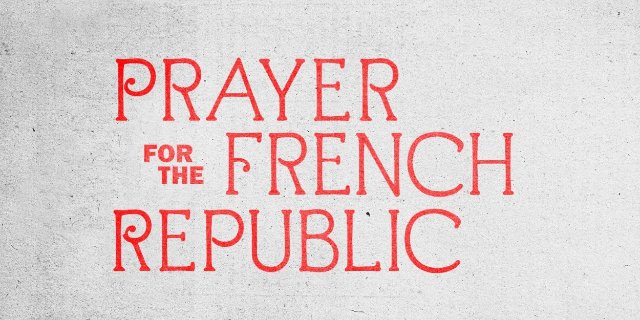Prayer for the French Republic
Manhattan Theatre Club
By: Karen Isaacs - Feb 08, 2024
Rising antisemitism – or perhaps it is better to say – rising acts of overt violence and attacks on Jews – is worldwide. Prayer for the French Republic, which is getting a terrific production at the Manhattan Theatre Club, focuses the issue on France.
How many of us know much about those attacks in France? Few, if any, know the specifics; some may have a general recollection that our major newspapers have covered some attacks.
The play is one of those that, while you are watching it, you are totally absorbed. But when you analyze it later, you recognize that it has numerous flaws.
The performances are not one such flaw.
Playwright Joshua Hamon, in his 2022 play, uses one French family–in scenes from 1944 – 46 and 2016 to explore antisemitism, national identity, loyalty, and family dynamics.
The play could be cut – several monologues, while amusing, are overlong. Some might argue that some of the scenes in 1944 & 46 are interesting but not integral to the main plot.
The title refers to an actual prayer about France that is said in houses of worship and other places. It appears to be similar to our pledge of allegiance.
The Benhamou family are upper-middle-class Parisians: mother, Marcelle, is a psychiatrist; father, Charles, is also a physician; Elodie, their daughter, is 27 and bipolar; and their son, Daniel, 25, teaches at a Hebrew school. The family are observing the Jewish rituals more since Daniel became a more religious. You get the sense that they, like Marcelle’s brother Patrick, are non-observant. In fact, Marcelle mentions that she never thought of herself as Jewish until she married a Jewish man.
Into this mix comes Molly, a third or fourth cousin who is doing a year abroad in Nantes. Why Nantes and not Paris? Her parents felt it was safer. Molly is the excuse to discuss the family history and feelings.
The event that sets things awhirl is Daniel being physically attacked while walking to the metro from his school because his attire identified him as Jewish. The family had known of other attacks, but now it is striking close to home. Marcelle and Charles react very differently: she wants Daniel to cover his head with a baseball cap; Charles sees the attack as one more step towards who knows what. He begins suggesting a move to Israel.
The 2016 characters debate what these attacks on Jews mean. Are they an omen of worse to come? For Charles, it brings back memories of being forced to leave Algeria in the 1960s, where the family had lived for generations.
The 1944-46 scenes show Marcelle’s great-grandmother and great-grandfather in their Paris apartment. Why they weren’t arrested by the Nazis is either a miracle or a convenient plot device. Irma, the wife, talks constantly about their three children: their daughter and family got out in time and went to Cuba, but there has been no word about their two sons and families. Her husband, Adolphe, tries to comfort her with the fantasy that the sons are living in Switzerland. In act two, Marcelle’s grandfather returns with her father, a teenage boy. He doesn’t want to speak about what happened; when he is pushed by Irma, he tells her that his wife and daughters are dead.
The problem with the play is that too often the characters are either not plausible or seem to be convenient mouthpieces for a point of view.
This is true of Marcelle’s brother, Patrick, who serves both as a narrator and as a representative of the “this is all going to blow over” and “after all we are French” philosophy. On the not plausible side is Molly, the cousin. Here is intelligent young woman who claims to know nothing about Jewish rituals but has strong opinions about Palestine. It is incredulous that she could have grown up on the east side of Manhattan and not had Jewish friends who talked about their lives, or that she had never been invited to Bar or Bat Mitzvah.
While you are watching the play, you may not notice these, but afterwards you will. The son, Daniel, is an enigma. His sister says he became observant because of girl who dumped him; he never refutes it. We also wonder if he is naïve. It may not be right that showing his religious identity leads to stares and attacks (it wasn’t the first), but safety might take precedence.
Director David Cromer does his best to keep the play moving; but it is overlong. At times, when some conversations and monologues go on too long, you may want to cry out “Enough, move on.”
Overall, the production uses the scenic design by Takeshi Kata, lighting design by Amith Chandrashaker, sound design by Daniel Kluger and costume design by Sarah Laux effectively.
Betsy Aidem is terrific as Marcelle and she is matched by Nael Nacer as Charles. Other cast members, while fine, are hampered by the flatness of their characters. You know too little about them.
Prayer for the French Republic is thought-provoking, but last season’s Leopoldstadt, which addresses many of the same themes, is a better work.

